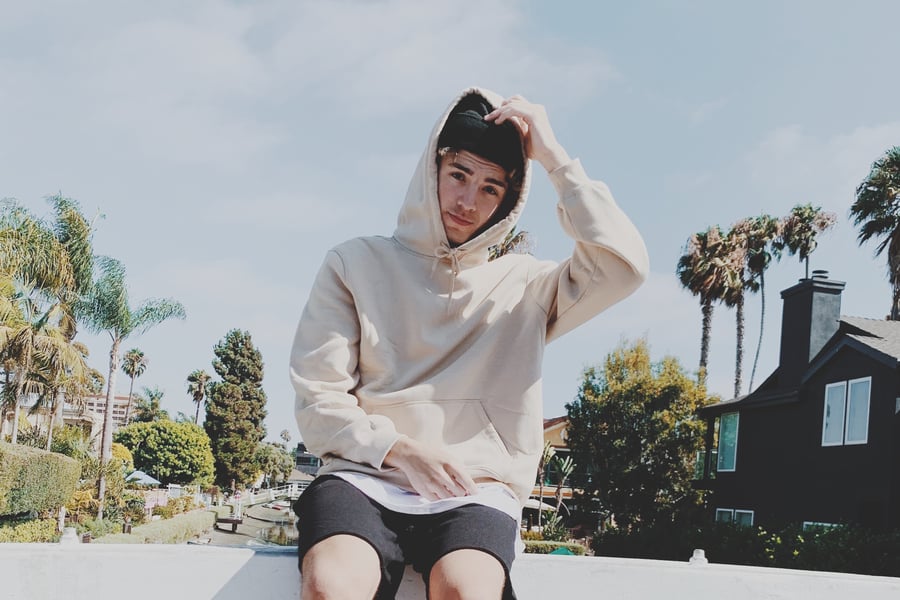On March 3, the electronic producer Surf Mesa’s single “ily” debuted on Spotify’s Global Viral chart, which highlights songs benefitting from a recent surge in interest. The track merged an acoustic cover of the Sixties classic “Can’t Take My Eyes Off You,” originally recorded by Franki Valli, with a downtempo, four-on-the-floor beat. Four weeks later, the song made it to Spotify’s Top 200 — which currently requires more than 700,000 streams a day — and it had gained an appendage: The title was now “ily (i love you baby).”
“We found that because of the way it was titled, ‘ily,’ the search terms ‘Surf Mesa I Love You’ weren’t finding the song,” explains Toby Andrews, general manager of the label Astralwerks. “So we went in and changed the title to add ‘I Love You Baby’ to make it easier for people to find. Now that’s a practice we’re looking into for other records of ours — things that have good traction behind them, but maybe the title doesn’t necessarily match the theme of the song that people are looking for.”
Today’s fast-moving viral hits face several challenges. The first and most important hurdle remains sample clearance: Singles often become popular among young online listeners before the legal matters are buttoned up. When Natalie Dodge, Astralwerks’ senior director of A&R, noticed “ily” beginning to move, she had to find a way to clear both the vocal sample — ripped from another popular TikTok user without permission — and the original “Can’t Take My Eyes Off You” composition. Bringing Surf Mesa into the fold was “the most challenging signing I’ve done,” Dodge says.
Clearing samples is crucial to prevent singles from being taken down. But it’s also important for labels to ensure that, once a single starts to acquire momentum on one listening platform, that energy can be translated to the other streaming services. On TikTok, for example, listeners latch on to a 15-second snippet of a song. In a matter of days, that snippet could soundtrack millions of videos, but, as in the case of “ily,” the audio might not have a clean, obvious link to its parent track. And if listeners can’t easily connect the two, an artist is unable to capitalize on the surge in interest, meaning titles might have to be adjusted on the fly.
“Users are gravitating towards a certain phrase, a certain lyric,” Andrews explains. “We don’t want people looking on their phones and then going to Spotify or Amazon and saying they want [that phrase] but not finding the song.”
To some degree, this inverts the typical power structure of the music industry. Historically, labels launch marketing campaigns to create demand for songs; now, songs can be tailored to meet overnight waves of demand that arose mostly independently. “Instead of a top-down situation when an artist promotes a record and people create content around that, it’s fans connecting to a song, and whenever part of that song resonates with the viral movement, that has to translate back into discovery on other platforms,” explains Dae Bogan, a music licensing expert who founded TuneRegistry, a management platform that deals with song metadata.
At the moment, the system for artists and labels to meet demand halfway is clunky. On the major streaming platforms, “you can’t search by lyrics,” Bogan points out. So when there’s a disconnect between a viral lyric and a track title, the best response is “taking the most important part of a song and making it a keyword in platforms like Spotify and Apple.”
Love Music?
Get your daily dose of everything happening in Australian/New Zealand music and globally.
Another option is to “make playlists with that [key phrase] in the title,” adds Catherine Corkery, who has also been working with Surf Mesa in her role as senior manager of marketing at Astralwerks. “Or we’ve seen third party playlisters who have playlists with that [key phrase in the] title and asked them to add this song in or move this up” — anything to catch a potential listener on a stray search.
As the burgeoning world of voice-search starts to have more influence on listening habits, making sure songs fit search terms in this way will only become more important, says Hazel Savage, CEO and cofounder of AI-based start-up Musiio. “Especially what we see with younger generations is they’re more and more comfortable with voice search,” Savage notes. In that space, “it’s all about how much data can you attach to each song,” she continues. “The more you have, the more powerful your search terms are gonna be.”
Astralwerks’ Andrews says “we’ve seen a lot more people using Alexa and voice search since they’re stuck at home.” And when the label attached the “(i love you baby)” to “ily,” “voice search results for the song tripled overnight.”
The “ily” title change is already impacting the way Astralwerks looks at its catalog. “There’s a song of ours called ‘Sex’ by Eden that has over one million creations on TikTok; it’s one of the top ten trending tracks globally right now,” Andrews explains. “But the phrase people are using on the platform is, ‘catching feelings,’ nothing to do with sex at all. So the title of that one is going to change to ‘Sex (Catching Feelings)’ to optimize how people are absorbing the song. It’s going to be interesting to see that affect more and more people now.”



































